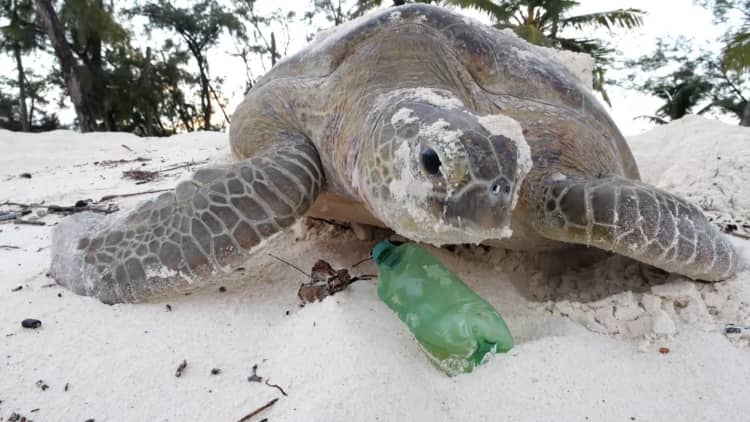The world's uber wealthy are increasingly putting their money towards socially, ethically and environmentally conscious businesses, which could spur the growth of sustainable investments.
In Capgemini's World Wealth Report 2020, more than a quarter (27%) of high net worth individuals (HNWIs) — those with investible assets of $1 million or more — said they were interested in sustainable products. That figure rose to 40% among ultra high net worth individuals (UHNWIs), those with $30 million or more to invest.
And, importantly, that interest is translating into action. Wealthy investors said they plan to allocate 41% of their portfolio to businesses actively pursuing environmental, social and corporate governance (ESG) policies by the end of the year. By the end of 2021, that figure is set to rise to 46%.
Their top motivations included higher returns (39%); increased understanding of ESG products (29%); and a desire to give back to society (26%). Meanwhile their preferred areas of focus were environmental risks and climate change (55%); ethical governance systems (54%); and socially conscious business practices (52%).
As awareness on environmental issues increases ... the appetite for ESG products has increased.Shinichi Tonomuramanaging director, Capgemini Financial Services (Asia)
To be sure, the report — which studied more than 2,500 HNWIs across 21 major wealth markets — was conducted from January and February 2020, before the fallout of the coronvirus pandemic. However, Shinichi Tonomura, managing director of Capgemini Financial Services for Asia and Japan, said the increased interest likely spells good news for ESG as higher wealth bands tend to be "slightly ahead" of the curve for emerging investment opportunities.
"As awareness on environmental issues increases and more mature products with better financial returns become available, the appetite for ESG products has increased," Tonomura told CNBC Make It.
Sustainable investments outperform
Despite the wider economic downturn this year, sustainable investments have managed to weather the storm reasonably well.
According to the report, investors who implemented ESG equity investment strategies in 2020 beat broader benchmarks. Meanwhile, Morningstar found 70% of sustainable equity funds recorded returns in the top halves of their broad-based peer group in the first three months of the year.
Tonomura said that robust performance could indicate ESG companies' superior ability to withstand crises. ESG companies are typically measured on a broader range of metrics, such as social responsibility, as well as financial returns.
"In some ways, ESG scoring has also helped highlight firms who have more robust governance and other business policies to weather disruptions such as the present crisis," he added.
In a separate report released last week, JPMorgan said that the pandemic could prove to be a "major turning point for ESG." Its survey of investors with combined assets of more than $13 trillion found that 50% thought Covid-19 could mark a positive move for ESG momentum over the next three years.
Millennials lead the charge
That new momentum could prompt wider adoption of sustainable investment products by general investors. Last year, Morgan Stanley found 80% of individual investors were interested in sustainable investing.
Millennials aged 26 to 40 are likely to lead that charge, according to Tonomura, who said young people tend to be "more conscious about sustainability and sustainable consumption."
More than two-fifths (41%) of HNWIs aged under 40 were drawn to sustainable investments compared with just 16% of those aged over 60, Capgemini's report found. That figure rose to 49% of young UHNWIs. Elsewhere, Bank of America Merrill Lynch predicted last year that millennials could pour between $15 trillion and $20 trillion into ESG investments in the U.S. in the next 20 to 30 years.
With many millennials now responsible for new wealth generation — and many more set to become recipients of the so-called Great Wealth Transfer as baby boomers pass on their riches — that is set to pave the way for even more sustainable investment options.
"It will be important for wealth management firms to keep in mind these unique needs and preferences of millennial investors when designing their ESG offerings for this segment," said Tonomura.
Already, traditional and digital investment platforms are waking up to this opportunity. In April, BlackRock launched a Global Impact Fund aimed at investing in businesses dedicated to solving major world problems. It plans to outperform the MSCI All Country World index. Meanwhile, robo-advisors like Betterment also run a range of low-cost, socially responsible investing options.
— CNBC's Pippa Stevens contributed to this report.
Don't miss: This region minted the most billionaires last year
Like this story? Subscribe to CNBC Make It on YouTube!



